Hey guys, this post is slightly more severe than our usual post. We're going to be looking at the different signs and symptoms that you should be aware of that can potentially indicate cancer. I think it's super important that more and more people are aware of these sorts of symptoms. But please do remember, if you have any of these signs or symptoms, it doesn't automatically mean that you have cancer. It can be caused by many different things as well. But what I want you to remember is that if you know anyone who has these sorts of symptoms or if you have any of these, you need to pick up the phone and make an appointment to speak to your healthcare professional as soon as possible. That is the most important thing. Before we begin, I understand this is going to be quite a long post. I would highly recommend that everyone read the entire post.
As some of you may, already know or may have experienced, cancer can have a massive impact on people's lives and it’s thought that one in two of us will develop some form of cancer at some point in our lifetime. In the UK, about 300,000 newly diagnosed cancer cases happen every year. Cancer can affect anyone at any age, but it's more commonly seen in those who are 50 and over. The most common types of cancer include breast, lung, prostate, and bowel cancer. However, there are over 200 different types of cancer, and they can all have different signs and symptoms. It can affect everyone differently.
Let’s see what exactly cancer is. Cancer is a disease
where genetic changes in our body cause cells or multiple cells to grow and
multiply more than they're meant to now. These cells can grow in abnormal ways,
leading to something called a tumour, and the way that these cells change in a
tumour can sometimes actually affect our core body systems, such as our immune
system, our hormones, and our blood, which can lead to various other problems,
and in some cases, the tumour can actually spread away from its primary site to
other organs and other parts of the body. This is known as metastases. This
form of secondary cancer is much harder to treat than when it is at its primary
site. This was a very simple explanation of cancer. But I think it's important
for everyone to have this basic understanding as we go through the post.
Cancer has the potential to cause so many problems and is
so common as well. This is one of the reasons why I decided to make this post
to make more and more people aware of these signs and symptoms, just to be
aware that they could potentially indicate cancer and to get advice straight
away from your healthcare professional if you have any of these signs or
symptoms. We know from studies that if cancer is caught early enough, you can
have a much better life. It has a much better chance of treatment and hopefully
a better quality of life.
So with all that, let's now begin working through these
signs and symptoms. First of all, let's begin with the general signs of cancer.
We're not going to be working through body parts yet. We’re just talking about
the general signs of cancer for everyone to be aware of. I’m going to number
these so they're easier to remember and also like I’ve been saying at the start
of this post, please remember if you have any of these sorts of signs, make an
appointment urgently to speak to your healthcare professional and please
remember it doesn't automatically mean that you have cancer. It could be
something else that's causing it. But the most important thing is that you pick
up that phone and make an appointment to speak to a healthcare professional. So
it can be investigated sooner. That's the most important thing. Another thing
to remember is that even if you don't have any of these symptoms if you feel
like something isn't right, you know your body better than anyone else. So if
you feel like something just isn't right, pick up that phone and make an
appointment to speak to your healthcare professional. There’s no harm in being
safe and getting things checked out.
General Symptoms of Cancer
1. Feeling very tired all the time
So general symptom number one is feeling very tired all the time, and what I mean by that is that it's normal
for you to feel tired after an extremely exhausting day, or if you haven't been
sleeping well, or if you have certain medical conditions. For example, if
you're depressed, if you have an interactive thyroid, or if you suffer from
iron deficiency anaemia, But if you don't know what the cause of this tiredness
is and you're feeling tired all the time, please make an appointment to speak
to your healthcare professional. So they can investigate. They can do some
tests to find out exactly what is going on.
2. Feeling Pain without any Explanation
Moving on to general symptom number two. feeling pain without any explanation for it. So what I mean by that is if you've
been out gardening, if you've been digging or if you've been out exercising and
you find a bit of pain somewhere around your joints, around any muscle that
you've been using. This is pretty normal. If you've got a random pain all of a
sudden without any cause for it and it's lasting three weeks or more, then you
need to make that appointment with your healthcare professional. So they can
investigate and find out what is going on.
3. Unexplained blood loss
Moving on to general symptom number three. Unexplained blood loss. It’s quite normal for you to bleed if you've cut
yourself. But if you have any unexplained blood loss. If you don't know what
the cause of it is, then you need to make an appointment to speak to your
healthcare professional and get that checked out. Blood can be in anywhere. It
can be in your saliva. It could be in your stools. It can be in your urine. It
can be in your vomit. It could be in your vaginal discharge. If you're finding
any blood in any of these sorts of places, please make an appointment with a
healthcare professional. Please do not leave it if you see some blood in your
poo. Do not leave it. Make an appointment to speak to your healthcare
professional. Unexplained bleeding also includes if you have any blood between
your menstrual periods or if you have any bleeding during or after sex. Please
do remember as well that if you've just started a contraceptive pill, you can
sometimes get irregular bleeding known as spotting. This can happen for about a
month up to three months. Actually, it can happen, which is quite normal. If it
does continue as well, or if you have any of these symptoms I’ve just spoken
about, please do make an appointment to speak to your healthcare professional.
so they can check it out and find out what is going on.
4. Lumps on the Body
Moving on to general symptom number four, it's all about lumps.
If you spot a lump anywhere on your body, please make an appointment to speak
to your healthcare professional and let them know if it's painful, let them
know it's been getting bigger, and let them know how long it's been there as
well.
5. Night Sweats
General
symptom number five. I think this symptom is probably one that not a lot of
people know about. I think the other ones quite a lot of people do know, but
this one is all about the night
sweats look. If you're
someone who sweats at night. Sometimes, if you’re very anxious, it can happen.
Sometimes if you have low blood sugar, it can happen, and sometimes if you have
a bit of an infection, you can have a night sweat, which can happen now and
then. Another thing as well to mention is if you're menopausal, you might have
hot flushes again, and you might have a night's sweat. so there are some causes
for these but if you're someone who's having night sweats and there are no
causes or you're waking up and the bedsheets are absolutely drenched or you're
waking up regularly. Because of it, you need to again make an appointment to
speak to your healthcare professional and make them aware of this. So they can
investigate it further.
Symptoms of Lung Cancer
1. Coughs
So with general symptoms now out of the way. The next thing I want to discuss is more respiratory. So we're looking at coughs. We’re looking at breathing. We’re looking at a speech in your voice. So let's first begin with a cough. Let's say for example you developed a new cough, you don't have COVID or you've had COVID and you've recovered and that cough has continued, you've had an ongoing cough for three weeks or more. If you've had an ongoing cough for three weeks or more you need to get an appointment made with your healthcare professional. So they can check you out and find out what is going on. Because a cough of three weeks or more can put you at higher risk of lung cancer. So this is something that needs to be checked out by your healthcare professional now.
2. Breathlessness
The second thing I want to discuss whilst we're on the
respiratory topic is breathlessness. Look it's normal to be breathless after a long run
or some strenuous exercise. But if you're breathless for long periods then this
is something that needs to be checked out. Obviously, there are sometimes
reasons for breathlessness causes for it for example if you're obese, if you
smoke if you're asthmatic if you have COVID. All of these can be potential
causes of breathlessness. But please do not self-diagnosis, if you are
breathless for longer periods which isn't normal, then speak to your healthcare
professional get yourself booked in and get this checked out as again if you're
breathless for long periods. It can sometimes be a sign of lung cancer.
3. Hoarse Voice
The third thing I’d like to discuss whilst we're on this
respiratory topic, this one more throat-related is a hoarse voice. So if you've had a cold or if you've been feeling
unwell or a sore throat, this can cause a hoarse voice, for a bit can cause a
croaky voice. It can cause a raspy voice can cause a bit of pain when you're
swallowing. It is quite normal but if it lasts for three weeks or more then
again, please make an appointment to speak to your healthcare professional and
get it checked out.
Symptoms of Skin Cancer
1. Moles on the Skin
So now let's move on to signs related to the skin. The
first thing I want to discuss is moles. Moles are normal. We all have them. We’re born
with them. They’re quite normal. But if you develop a new mole, you've never
seen a mole there before and you develop a new mole or you see any changes in a
current mole. The changes I mean a change in its size, it becomes itchy, it
starts bleeding, it starts crusting, any changes like that to a current mole
that you've got or any new moles, then again please make an appointment to
speak to your healthcare professional about it. You can also use a checklist to
help you identify melanoma early. Melanoma is a type of skin cancer.
2. Skin or Mouth Sores that don't Heal
The second thing that I want to discuss is skin or mouth sores that don't heal and what I mean by that is look it's normal
when you've hurt yourself you've injured yourself it takes about a week for a
sore scar to heal. However, if you find that it's taking several weeks for the
skin to heal or months to heal or if it still hasn't healed after several weeks
please make an appointment again to speak to your healthcare professional. So
it can be reviewed.
3. Breast Changes
Moving on to the third point which is all about breast changes. Breast cancer is more common in women than in men.
It can still happen in men too. So please remember that anyone can be affected
by it now. It’s quite common for your breasts to change during your menstrual
cycle when you have your period or during pregnancy. But please remember to
check for any permanent changes in the size, shape or feel of your breath. So
if something doesn't feel right, please get it checked out by your healthcare
professional. Another thing to be aware of is any discharge, just fluid or
blood coming from your nipples. A small degree of this is normal during
pregnancy or if you're breastfeeding. However please still make an appointment
to speak to your healthcare professional about this. So they can check it out.
Another thing I’d like to discuss as well as the NHS five-point plan which is all about screening your breasts
routinely and regularly monitoring them.
4. Skin or Nail changes
Point number four is any other skin or nail changes. Get used to looking at your body. Get used to
looking at your skin. Look behind you as well we can't see. Using a mirror if
you can’t see everywhere ask your partner or a friend. Have a look for yourself
and get used to doing it routinely. That way if you spot anything that's out of
the ordinary. You will know straight away to speak to a healthcare professional
about it and with regards to nails, one point I want to discuss with you is
just to look at your nails quite regularly. Look for any black lines in them.
If you ever see a black line in your nail again they should be prompting you to
speak to your healthcare professional as soon as you can.
Cancer in Digestive System
1. Difficulty Swallowing
So the next thing I’d like to discuss are signs related
to eating and weight loss. So the first thing I’d like to discuss is
difficulty swallowing. The medical term for this is dysphagia.
So we should all be able to chew and swallow food easily without having any
pain or difficulty or having any food coming back up. Now with dysphagia or
difficulty swallowing whatever you want to call it if you find that you're
choking on food, you're finding it difficult to swallow the food, it's coming back
up, you're constantly drooling, you're having any difficulty swallowing within
your coughing as a result of it. This can be a sign of dysphagia or difficulty
swallowing and it should be signalling you to speak to your healthcare
professional about it so they can find out what is going on, and what is
causing this problem.
2. Heartburn and Indigestion
Moving on to point number two which is all about heartburn and indigestion, please do not panic. I know this is very common a
lot of people suffer from it who are overweight if you're pregnant if you eat a
lot of fat foods a lot of spicy foods if you've got certain medicines. Many
people can get heartburn and indigestion. But what I want to ask you is your
doctor or your healthcare professional, aware that you have heartburn and indigestion.
If they're aware, they'll probably be actively monitoring it. They might have
sent you for an endoscopy whether it's in the camera down there to see what's
going on. But if they're not aware please do make them aware of this. Because
they need to know, they need to be aware that you've got these symptoms and
then they're going to check for some red flags and ask you a lot of questions
and do the investigations that are necessary to make sure nothing is underlying
to be worried about. Especially if you're 55 and over and if you've had any
weight loss or if you've got any dysphagia that we just spoke about. These are
a real sort of red flag symptoms that you should be aware of and should really
prompt you to speak to your healthcare professional. But even if you're under
55 and you don't have these sorts of symptoms, if you've just got heartburn and
ingestion please make your healthcare professionals aware of it that is the
most important thing.
3. Appetite Loss
Moving on to point number three appetite loss. It's normal from time to time to lose your
appetite slightly if you're slightly anxious if you're not feeling well.
However, if you feel like your appetite isn't going back to normal and you're
still having a very very low appetite, you don't want to eat, you're not in the
mood to eat, you're not feeling hungry, please make an appointment to speak to
your healthcare professional. Don’t leave it too late until you've lost all
your energy until you've lost, all your weight before you speak to them. If you
feel like your appetite isn't going back to normal make an appointment to speak
to your healthcare professional.
4. Weight Loss
Point number four is all about weight loss. If you've lost quite a lot of weight without even
trying. so you haven't intentionally tried to lose weight, if you feel like
your clothes aren't fitting you properly anymore they're feeling loose and
baggy, so you've had unintentional weight loss, especially if it's happened
quite quickly as well and you're noticing it, then please again make an
appointment to speak to your healthcare professional. This is super important.
So any form of unintentional weight loss. So nothing's changed in your life,
you're still eating well, you don't really feel like anything's changed, you
feel like your clothes are suddenly fitted feeling a lot looser and you've lost
a lot of weight, speak to your healthcare professional please so they can check
you out and find out what's going on and do the relevant investigations.
5. Bladder and Bowel Habit Changes
So next up we're going to go through signs related to bladder and bowel habit changes. So the first thing I want to discuss is bloating
and feeling bloated constantly. it's quite normal if you feel bloated now and
then occasionally when you feel like your stomach is all puffed out and you
feel all puffy around your stomach and stretched that's probably the best way
to describe it all stretched and puffy. This can happen quite commonly when
you've had a heavy meal or if you've eaten certain foods that cause bloating
like beans, cauliflower, broccoli, onions or if you've had lots of fizzy drinks
or if you've got a celiac disease or especially during your periods some people
feel a bit bloated. So it can happen now and then occasionally for certain
reasons. But the key message here is that if you suffer from bloating. So that
stretching that feels like bloating on your tummy for three weeks or more, even
if it comes and goes, you need to be speaking to your healthcare professional.
So even if it comes and goes and you've got it for three weeks or more, don't
leave it, don't think it's gonna be getting better on its own, just speak to
your healthcare professional and make an appointment, so they can find out what
is causing this.
6. Changes in your Toilet Habits
The second point I’d like to discuss, there are any changes in your toilet habits. So this can happen, if you're having any trouble
peeing or if you've noticed any changes in your bowel habits. These can all
suggest a potential underlying reason, or underlying cause which is actually
causing them and they will need investigating. So you need to speak to your
healthcare professional about them
Conclusion
Now we have come to the end of this post. Cancer can be a
very difficult topic to talk about and it can affect a lot of people. I’ve gone
through some common signs and symptoms that could potentially indicate cancer.
It doesn't automatically mean that you have cancer if you have any of these
signs or symptoms, it should just be prompting you to speak to a healthcare
professional. But please remember I’ve gone through the most common signs of symptoms.
The list is vast it goes on there are a lot more things. The most important
thing to remember is if something doesn't feel right because you know yourself
better than everyone else if something doesn't feel right pick up that phone or
go to your doctor's surgery, make an appointment to speak to someone as soon as
you can. So they can investigate and find out what is the cause for that.
That's the most important thing to remember just if anything doesn't feel
right, speak to someone. We spoke about the science behind cancer and we spoke
about the evidence behind spotting things earlier and how much of a significant
difference it can make.
Thanks for coming to see the post, I really hope you find this information helpful. Always remember that you are awesome and I will see you next post.


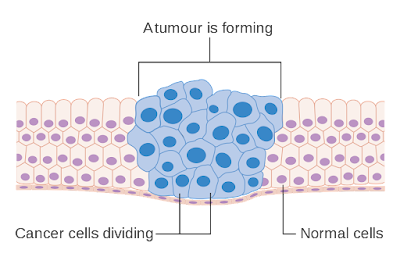
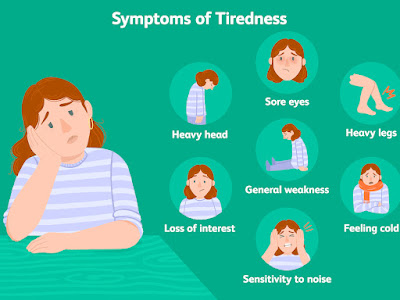


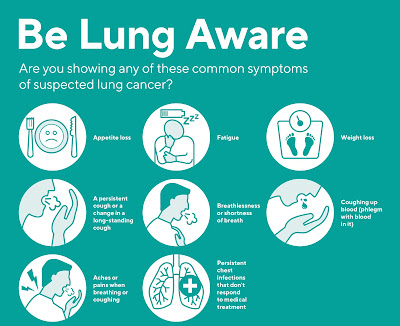

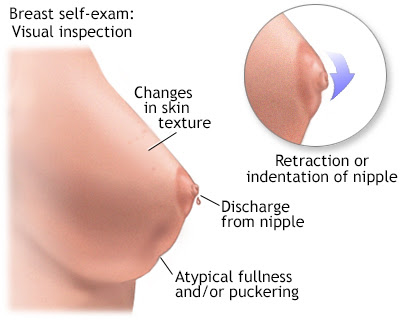


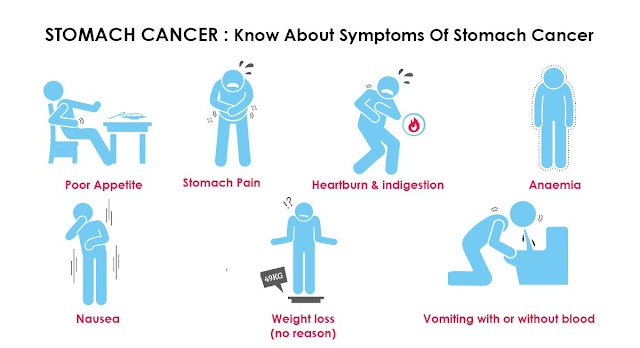




0 Comments